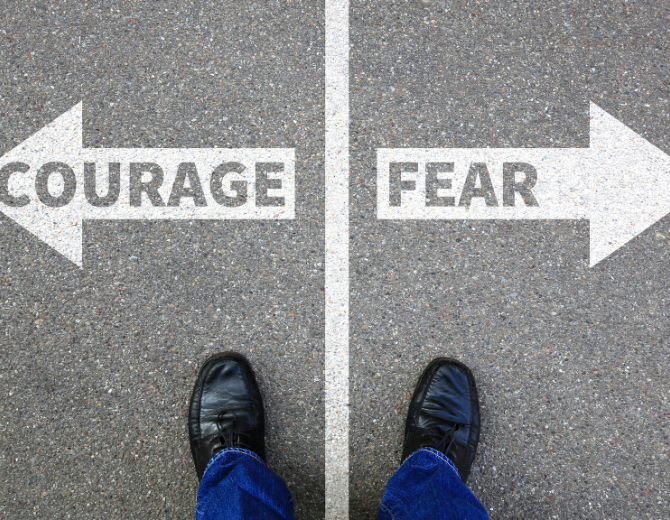The Ripple Effect of Workplace Courage: A Story of Bravery and Growth

In a bustling office filled with the hum of keyboards and the murmur of conversations, Sameer sat at his desk, staring at the presentation on his screen. His team was preparing to pitch a critical project, and everything seemed perfect on the surface. But Sameer had spotted something—a flaw that could jeopardise their success.
He hesitated, his mind racing with doubts. *What if I’m wrong? What if speaking up makes me look incompetent?* He looked around at his colleagues, all deeply engrossed in their work. The safer option, he thought, would be to stay quiet and let things unfold. But deep down, he knew he couldn’t shake the nagging feeling that this was a moment to act.
Moments like these define courage in the workplace. It’s not about grand, heroic gestures; it’s about the quiet decisions we make every day—to speak, to act, to lead—despite fear or uncertainty. Courage isn’t the absence of fear but the willingness to move forward in spite of it. As the meeting began, Sameer felt the weight of his dilemma grow heavier. His manager, who had always encouraged open dialogue, glanced at him with an inviting nod. Gathering his thoughts, Sameer took a deep breath and raised his hand.
“I noticed something in the data,” he began hesitantly. “It might need a second look before we present it.” His voice trembled slightly, but as he spoke, he noticed heads turning toward him—not with judgment, but with interest. The room grew quiet as his team leaned in, eager to understand his observation. His manager thanked him for his input, and the team quickly realized that Sameer’s insight had caught a significant error. His courage not only saved the presentation but also reinforced the value of speaking up.
Courage in the workplace often manifests in subtle ways—voicing an idea, admitting a mistake, or addressing a sensitive issue. Yet, it’s these seemingly small acts that drive progress, spark innovation, and build trust. While many people yearn to act courageously, barriers like fear of failure, hierarchical pressures, and the fear of judgment often hold them back.
For Sameer, that moment of courage was a turning point. It reminded him that speaking up wasn’t about being fearless—it was about valuing the outcome more than the fear. Courage, he realized, isn’t something you’re born with; it’s a skill you develop with practice. Each small act builds the confidence to take on bigger challenges, creating a ripple effect that inspires others to do the same.
When courage becomes a shared value in a workplace, its impact is transformative. Teams that embrace it become more innovative and resilient, as people feel safe to voice ideas and address problems without fear of backlash. Courage creates a culture of authenticity, where individuals feel empowered to bring their whole selves to work. For leaders, fostering courage means more than simply encouraging it—it means creating an environment where it can thrive. Sameer’s manager played a key role in this by establishing a safe space where ideas and concerns were met with respect. This culture of trust gave Sameer the confidence to act, knowing his contributions would be valued.
By the end of that meeting, Sameer felt a shift, not just in how his colleagues perceived him but in how he saw himself. His courage had set a precedent, and others in the team began speaking up more openly. The small moment of bravery didn’t just solve a problem; it strengthened the team’s dynamic and reinforced their shared purpose.
Courage in the workplace isn’t about fearlessness or dramatic acts—it’s about the choices we make every day to prioritize growth, truth, and connection over comfort. Whether it’s the decision to voice an idea, take a risk, or stand up for a colleague, these acts of courage build the foundation for progress and innovation.
As Sameer walked out of the meeting room, he felt a newfound confidence. Life at work would always present challenges, but now he knew he had the courage to face them. And in doing so, he realized that courage isn’t just a professional skill—it’s a quiet superpower that can transform individuals, teams, and organizations.


